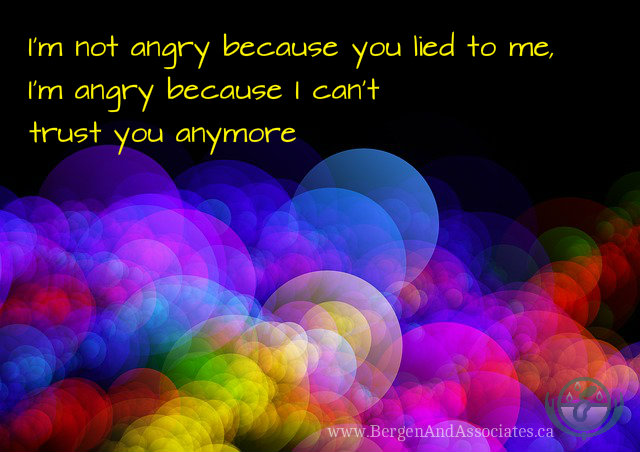Trust is an emotion–a distinctly human feeling.
And normally business likes to think it runs on facts, and we think that feelings don’t belong. People who “deliver” regularly–who do everything they promise they are going to do–they are reliable…it doesn’t mean people will trust you. You know…you have a good long term friend who messes up…yet you still trust him/her right? It’s because s/he and you have a common belief system, a history, and a set of values…we become more confident to take risks and explore…because we trust them, we know they have our backs.
Leadership will tell a person what to do. And it might work, but leadership in and of itself isn’t trustworthy. When a person in leadership has the trust of those they lead…then they have authentic authority.
Authority and leadership…so not the same thing. Trust is the difference.
Simon Sinek tells this story:
Imagine you want to go out on a date, but need a babysitter for the evening. You have two choices…you can get a 16 year old girl from down the street that you have known for years with very little babysitting experience…or a 32 year old who has 10 years experience. Who would you choose?
Yeah, I’d pick the young girl from my community too.
We’d rather have people that we have multiple points of connection with than well qualified people who we don’t know what they believe and what their values are and where they come from.
The emotion of trust develops in a “high touch” and high frequency sort of way. We need confidence and frequency to develop trust…trust happens in drops, and fills the trust bucket gradually.
Picture this…you have a positive interaction with another person–it’s like a little string. A single string isn’t very strong and could break easily. You have a thousand small interactions with that person…little moments of connection. A thousand strings…well, that forms a net.
A net can hold a lot more weight…and with that level of trust, weightier stories can be shared.
We all long to be known…we want to tell our stories and be heard…but the strength of the bond between us needs to be able to hold the weight of the stories.
There’s a few things I know about the strings that hold trust:
Strings are developed best in proximity.
It’s hard to develop trust online. We have these “mirror neurons” in our brain…you know that reflex to yawn when others yawn? On MRI’s, the parts of our brain that have us smile light up when we see others smile…we connect and build trust when we are with another person in a way we can’t when things are done online.
Trust is about human interaction and real conversations.
When we are in face to face something extra happens that can’t happen online. When two people “shake” on a deal, it means something more than if they just agree to it verbally. That physical act of shaking hands and looking each other in the eye seals the deal.
Nets of trust are developed over time.
The net that develops that holds the weight of major trust develop in the smallest of moments, with small strings and little threads gradually building strength.
- Remembering someone’s name.
- Asking about something they told you a week ago.
- Following through.
- Showing up on time.
- Being there
- Listening
Big grand gestures of trips and pay raises and large gifts–they’re nice–but trust is built with small threads and thin strings over time.
Nets of trust can be ripped apart
The net that develops with thousands of small threads can be destroyed in an instant.
Picture this: You take a child for walks regularly…and they meet dogs along the way. The child who meets dogs that are the same size, and sniff and lick or held on a leash by the owner. Then one day a dog pulls the leash away from the owner’s hand and bounds up to the child, knocking the child over. The dog snarls and bites the child.
The next day, the child refuses to go for a walk at all…so as not to encounter any dogs at all. The child now doesn’t trust any dogs…because despite many friendly dogs, one really bad encounter with one nasty one sours the species.
Trust is like that.

Nets of trust can slowly erode with neglect
Disengagement is the most subtle way to break trust. It’s sinister and subversive. To pretend to “be there” and be trustworthy, but to be preoccupied and not be following through…and then to deny it when it’s raised. That erodes the net slowly over time in difficult and painful ways.
Trust is vital to survival…it is the precursor to connection…which we all require for life.
(This video has some great ideas…the middle is a little boggy…but the first and last 5 minutes are really helpful to our discussion)






Write a Comment